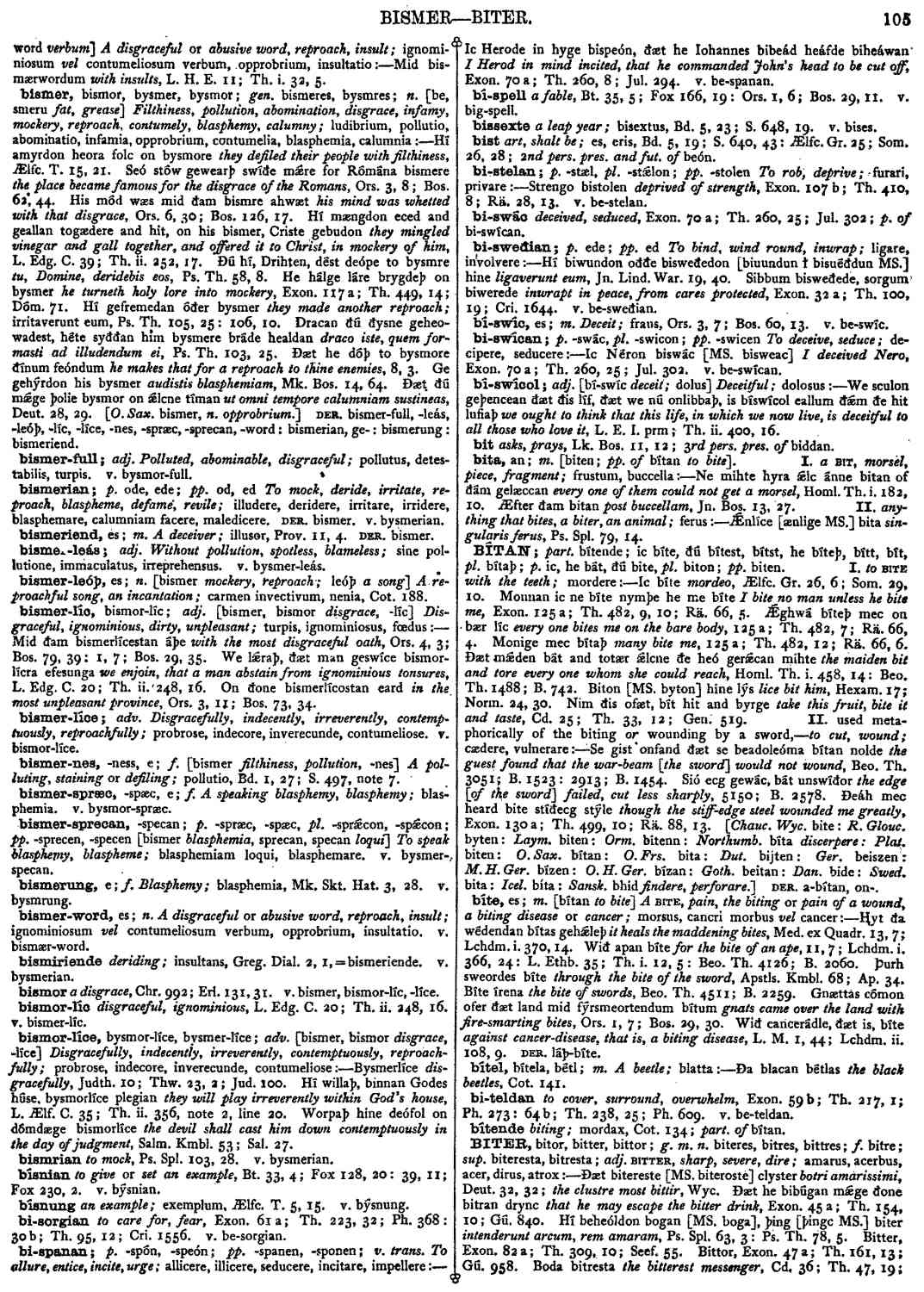BÍTAN
- verb [ strong ]
-
Ic bíte
mordeo,
- Ælfc. Gr. 26, 6; Som. 29, 10.
-
Monnan ic ne bíte nymþe he me bíte
I bite no man unless he bite me,
- Exon. 125 a; Th. 482, 9, 10; Rä. 66, 5.
-
Ǽghwá bíteþ mec on bær líc
every one bites me on the bare body,
125 a;- Th. 482, 7; Rä. 66, 4.
-
Monige mec bítaþ
many bite me,
125 a;- Th. 482, 12; Rä. 66, 6.
-
Ðæt mǽden bát and totær ǽlcne ðe heó gerǽcan mihte
the maiden bit and tore every one whom she could reach,
- Homl. Th. i. 458, 14: Beo. Th. 1488; B. 742.
-
Biton [MS. byton] hine lýs
lice bit him,
- Hexam. 17; Norm. 24, 30.
-
Nim ðis ofæt, bít hit and byrge
take this fruit, bite it and taste,
- Cd. 25; Th. 33, 12; Gen. 519.
-
Se gist onfand ðæt se beadoleóma bítan nolde
the guest found that the war-beam [the sword] would not wound,
- Beo. Th. 3051; B. 1523: 2913; B. 1454.
-
Sió ecg gewác, bát unswíðor
the edge [of the sword] failed, cut less sharply,
- 5150; B. 2578.
-
Ðeáh mec heard bite stíðecg stýle
though the stiff-edge steel wounded me greatly,
- Exon. 130 a; Th. 499, 10; Rä. 88, 13.
Bosworth, Joseph. “BÍTAN.” In An Anglo-Saxon Dictionary Online, edited by Thomas Northcote Toller, Christ Sean, and Ondřej Tichy. Prague: Faculty of Arts, Charles University, 2014. https://bosworthtoller.com/4510.
Checked: 0